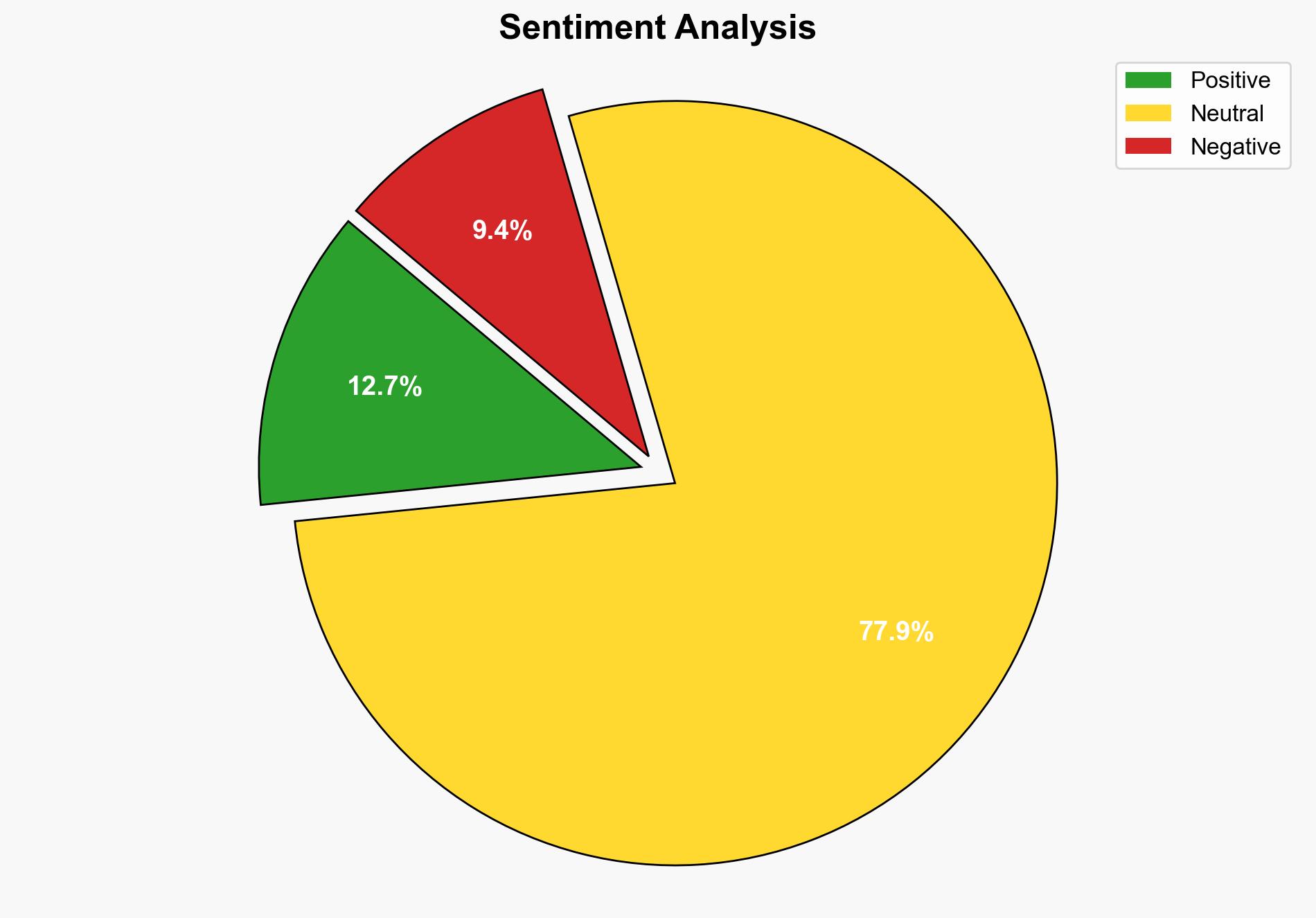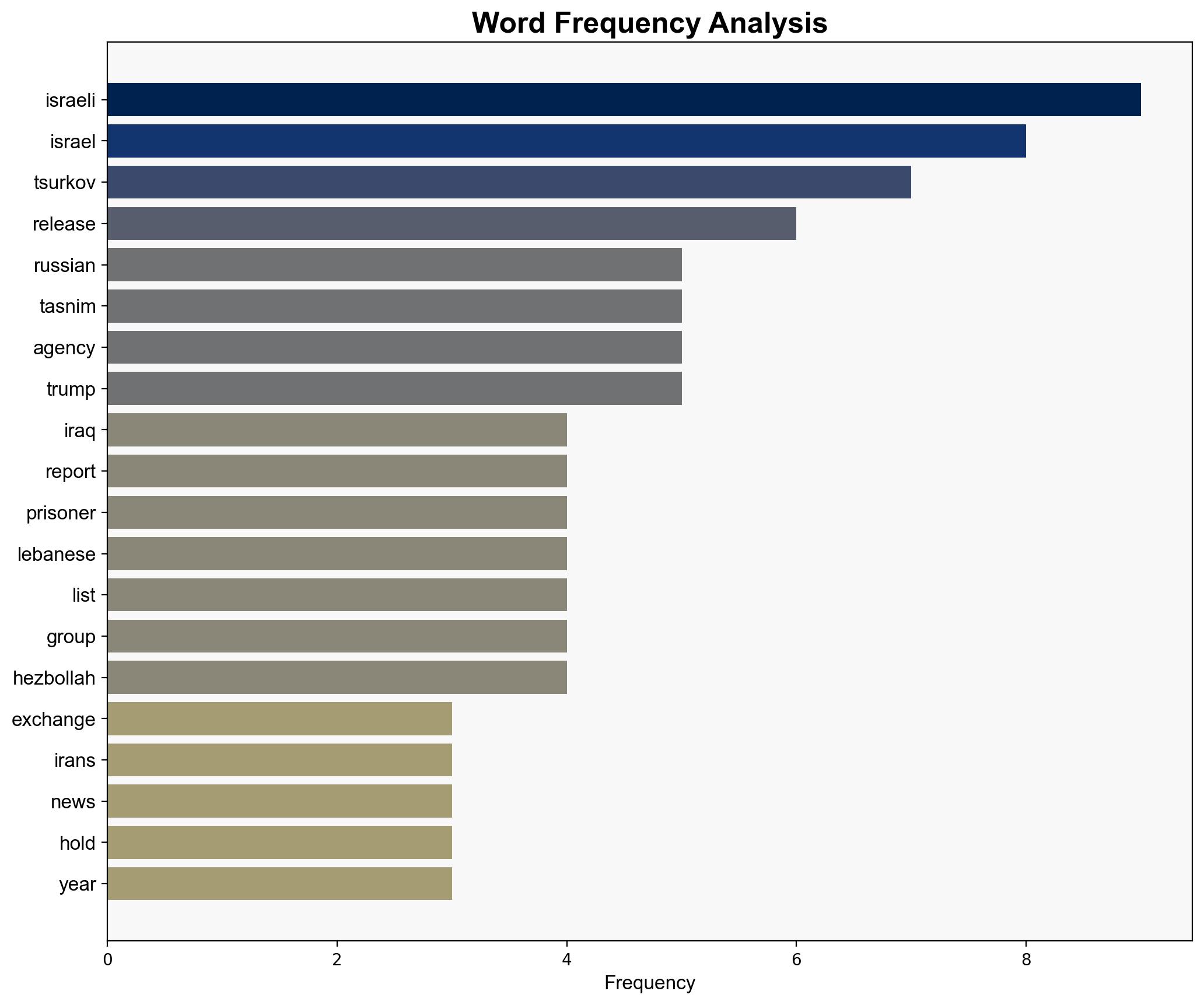Israeli-Russian captive in Iraq Tsurkov was freed in exchange deal Report – Al Jazeera English
Published on: 2025-09-11
Intelligence Report: Israeli-Russian captive in Iraq Tsurkov was freed in exchange deal Report – Al Jazeera English
1. BLUF (Bottom Line Up Front)
The most supported hypothesis is that Elizabeth Tsurkov’s release was part of a negotiated prisoner exchange involving multiple parties, including Iran-backed groups and possibly influenced by international diplomatic efforts. Confidence level is moderate due to conflicting reports and lack of transparent information. Recommended action is to enhance intelligence collection on Iran-backed groups’ operations in Iraq and monitor potential retaliatory actions or shifts in regional alliances.
2. Competing Hypotheses
1. **Hypothesis A**: Elizabeth Tsurkov’s release was part of a direct prisoner exchange deal between Israel and Iran-backed groups, facilitated by intermediaries, with minimal U.S. involvement.
2. **Hypothesis B**: The release was a result of broader geopolitical negotiations involving multiple stakeholders, including the U.S., leveraging Tsurkov’s situation to address wider regional security concerns.
Using ACH 2.0, Hypothesis A is better supported by the direct reports from Iran’s Tasnim News Agency and the specific mention of an exchange involving Lebanese nationals. However, Hypothesis B cannot be entirely discounted due to the involvement of high-profile figures like Donald Trump and the complex regional dynamics.
3. Key Assumptions and Red Flags
– **Assumptions**: The credibility of Tasnim News Agency as a source; the assumption that all involved parties acted in good faith during negotiations.
– **Red Flags**: Conflicting narratives about U.S. involvement; the potential for coerced confessions or misinformation regarding Tsurkov’s alleged espionage activities.
– **Blind Spots**: Lack of detailed information on the negotiation process and the identities of all exchanged prisoners.
4. Implications and Strategic Risks
– **Geopolitical Risks**: Potential escalation of tensions between Israel and Iran-backed groups, impacting regional stability.
– **Security Risks**: Increased threat of retaliatory actions by Hezbollah or other affiliated groups against Israeli or Western interests.
– **Psychological Impact**: Potential erosion of trust in diplomatic negotiations if perceived as coerced or unbalanced.
5. Recommendations and Outlook
- Enhance intelligence-sharing mechanisms with regional allies to monitor Iran-backed groups’ activities.
- Prepare contingency plans for potential retaliatory actions in the region.
- Scenario Projections:
- **Best Case**: Stabilization of regional tensions through diplomatic engagement.
- **Worst Case**: Escalation of hostilities leading to broader conflict.
- **Most Likely**: Continued low-level tensions with sporadic incidents.
6. Key Individuals and Entities
– Elizabeth Tsurkov
– Imad Amhaz
– Donald Trump
– Kataib Hezbollah
– Tasnim News Agency
7. Thematic Tags
national security threats, cybersecurity, counter-terrorism, regional focus





